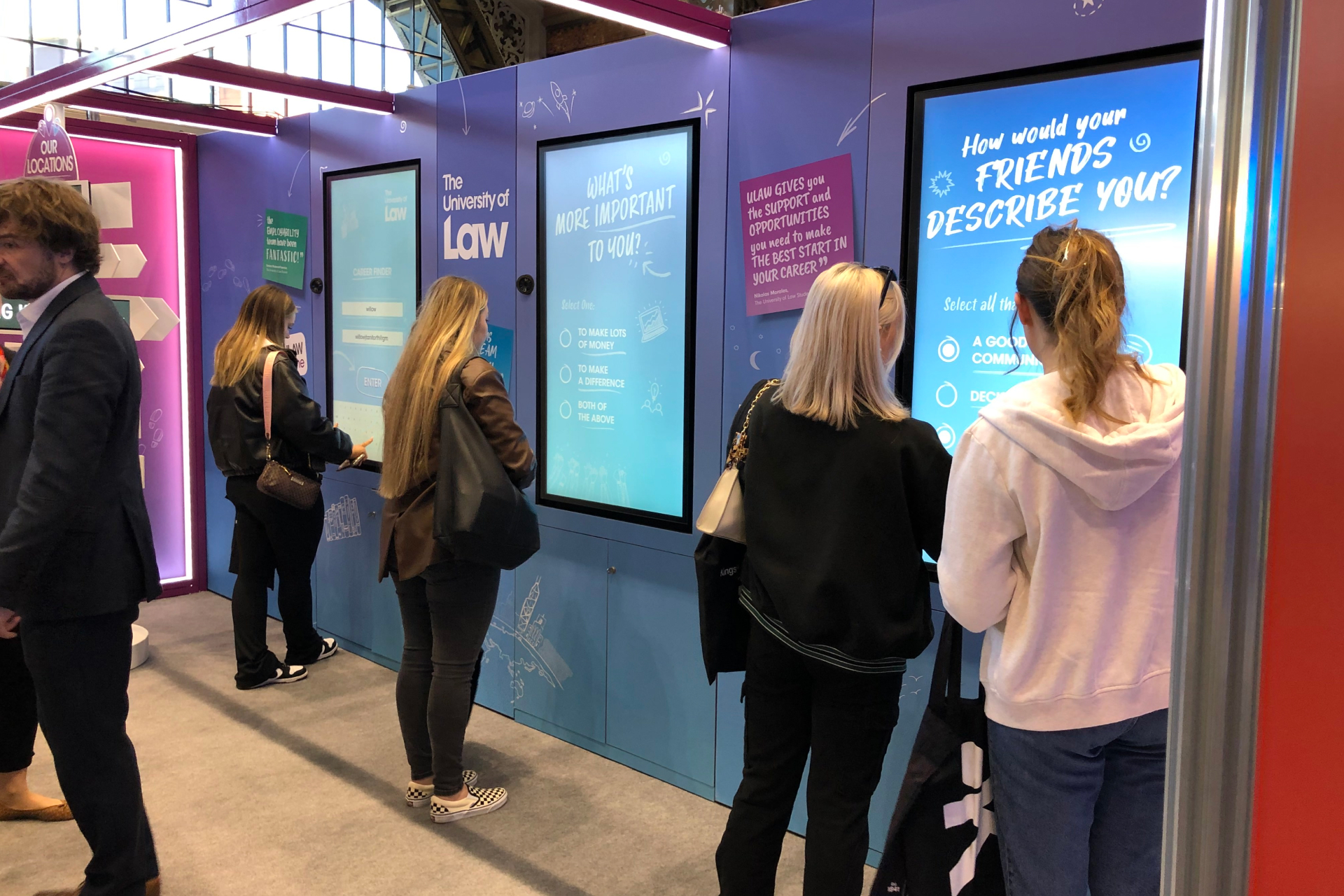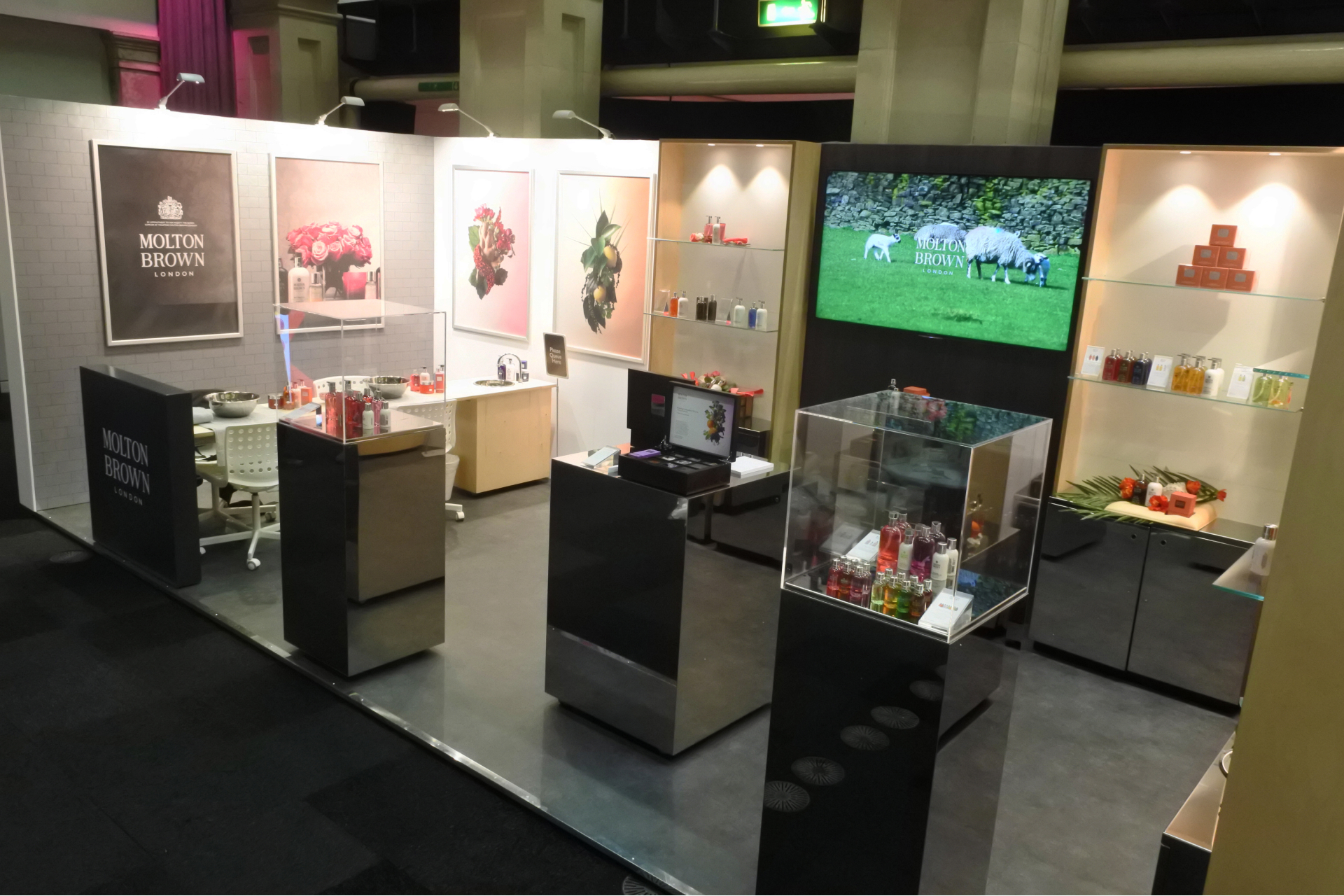Top Legal and Regulatory Considerations for Booth Design
The consideration of legal and regulatory requirements is fundamental to the process of exhibition booth design. Adhering to these rules, which may encompass aspects such as dimensions, structural specifications, materials used, or safety guidelines, ensures your stand's compliance and prevents its closure or imposed modifications due to non-compliance. These requirements often serve to ensure the safety of staff, attendees, and fellow exhibitors, contributing to a conducive environment at the event. In addition, compliance from the design phase allows for cost-efficiency of your exhibition stand, by preventing penalties or the last-minute alterations associated with non-compliant booths. It also serves as an effective risk management strategy, reducing legal risks and protecting your business from potential reputational damage.
Creating an eye-catching, engaging booth design is often the top priority when prepping for a trade show. However, amid the quest for aesthetic brilliance and brand alignment, it's crucial not to overlook the nitty-gritty: legal and regulatory considerations. These aspects, while less glamorous, are the scaffolding that holds up your exhibition endeavour. This blog post aims to shed light on key legal and regulatory factors you should consider when planning your next trade show booth.
Accessibility Requirements
A well-designed booth should be accessible to all, including people with disabilities. Many countries have regulations related to accessibility. In the United States, for instance, the Americans with Disabilities Act (ADA) sets standards for accessible design, covering everything from booth height and aisle width to signage and interactive elements. Ensuring that your booth is ADA-compliant isn’t just a legal necessity; it's also a step towards a more inclusive brand image.
Intellectual Property Rights
As exhibitors often invest heavily in custom-designed booths, banners, and other promotional materials, it’s crucial to be aware of intellectual property laws. Make sure that all the design elements and content you’re using—such as logos, copyrighted images, and even the layout design—are either owned by your company or properly licensed. Ignoring this can lead to expensive legal battles and potential reputational damage.
Safety Regulations in Stand Design
The safety of booth staff and visitors is paramount, and there are usually strict guidelines governing this. These could relate to the structural integrity of your booth, electrical installations, fire safety, and even the materials used in construction. In some cases, you may be required to submit your design for approval to regulatory bodies or to undergo a safety inspection before the event. By aligning your exhibition strategy with established safety regulations and best practices, you will help create a safe and secure environment for everyone involved.
Local, State, and Federal Regulations in Exhibiting
If you’re participating in trade shows in different locations—whether nationally or internationally—it's crucial to familiarize yourself with any location-specific rules and regulations. These can vary widely and may include stipulations on materials, waste disposal, and even the kind of merchandise you can display. For example, some European countries have stringent environmental regulations that impact booth materials and waste management.

Data Protection and Privacy
In the digital age, many booths incorporate interactive elements that collect data from visitors, such as email addresses or even biometric information. It’s essential to comply with data protection laws like the GDPR in Europe or the CCPA in California. This involves securing consent from attendees before collecting data and ensuring the secure storage and handling of this information.
Here are some general guidelines for compliance:
- Transparent Processing: Upon collecting data, make sure to clearly explain your reasons for data processing.
- Data Retention: Inform the individual in clear terms about the length of time you can hold their data. The retention period should be based on individual business needs.
- Right to Access and Rectification: Ensure that individuals have the right to access their personal data and correct any inaccuracies.
- Data Protection Officer: Appoint a Data Protection Officer if your organization processes large amounts of sensitive data.
Licensing and Permits
Depending on the jurisdiction and the nature of your exhibit, you may require specific licenses or permits. This could range from a simple permit for distributing literature to more complex licenses for activities like food and beverage sampling. Operating without the required permissions can result in fines and could get you booted out of the event.
If your company is planning to exhibit, it's crucial to ensure that all necessary licenses and permits are in place well ahead of the event. Many exhibitions, particularly large-scale events, often require various types of permits and licenses. For instance, an event permit is commonly necessary, especially for outdoor exhibitions. If the exhibition involves the sale of any goods or services, a business license would likely be required according to most jurisdictions. It's essential to apply for these permits in good time, since the approval process could take a while. Always consult with a legal expert or local authority to ensure you understand all requirements that apply to your specific circumstance. Falling foul of local regulations could result in penalties and potentially jeopardize your exhibition.

Promotions and Contests
If your booth strategy includes running promotions or contests, you’ll need to be aware of the legal requirements governing such activities. This usually involves clearly displaying the rules, ensuring they’re fair, and sometimes even registering the contest in advance with regulatory authorities.
If designed correctly, running promotions and contests at your exhibition stand can be an effective way to entice attendees and increase engagement. However, it's important to be aware of, and comply with, both local and international regulations governing such activities. Some critical aspects to consider are:
- Rules and Eligibility: Clearly define and communicate the rules of your promotion or contest. These rules should specify eligibility criteria, such as age or residency restrictions.
- No Purchase Necessary: Many jurisdictions stipulate that a purchase should not be necessary to enter a contest. This can avoid the contest being classified as an illegal lottery.
- Prizes: All prizes should be awarded as described in the promotional materials. Misrepresentation of prizes could result in legal repercussions.
- Privacy: When collecting contact information from entrants, ensure that you comply with data protection and privacy laws. These regulations may dictate how you store, use, and dispose of personal information.
- Permits: Depending on the nature of your contest, you may be required to obtain a permit or license. This is particularly important if the contest is dependent on chance.
- Social Media Policies: If you’re promoting or running the contest on social media platforms, be aware of each platform's unique rules and guidelines.
Remember, while exciting, contests and promotions also come with legal ramifications and responsibilities, so make sure to comply with all necessary requirements.
Contracts with Event Organizers
Your relationship with the event organizers will usually be governed by a contract, outlining what you can and can't do within your booth. Make sure you read the fine print and understand all the clauses. This contract often stipulates details like allowed booth dimensions, weight limits, setup and takedown times, and restrictions on things like noise levels or types of displays.
Indemnity and Insurance
Trade shows are bustling places, and despite all precautions, things can go wrong. You might be required to have certain types of insurance in place, such as liability insurance, to protect against accidents or damages. Some events even require exhibitors to indemnify them against any losses or damages that may occur due to their booth activities.
Cultural Sensitivity
If you’re exhibiting in another country, be aware of cultural norms and local sensibilities. What is acceptable in one country may be frowned upon or even illegal in another. Cultural insensitivity can not only tarnish your brand image but may also result in legal complications.
Incorporating cultural sensitivity into exhibition design is vital for creating authentic, respectful, and inclusive experiences for visitors. To achieve this, invest in thorough research to develop a comprehensive understanding of the history, norms, values, and sensitivities of the culture being presented. Engage with representatives from the relevant community to participate in the design and implementation process, ensuring factual representation and preventing misinterpretation.
It’s important to strive for balance in cultural representation by acknowledging the diversity within a culture, thus avoiding stereotypes. Approach the design process with a strong ethical responsibility that respects intellectual property rights, privacy, sacred symbols, and the integrity of cultural items. By following these recommendations, you will be able to develop a culturally sensitive exhibition that resonates with a diverse audience and fosters a positive brand image.
Final Thoughts
While the aesthetic and functional aspects of booth design are undeniably crucial, adhering to legal and regulatory guidelines is non-negotiable. Failing to comply can result in not just financial loss but could also negatively impact your brand reputation. It’s always a good idea to consult with legal professionals well in advance to ensure that you’re fully compliant and ready to make a splash at your next event—for all the right reasons.

Comments